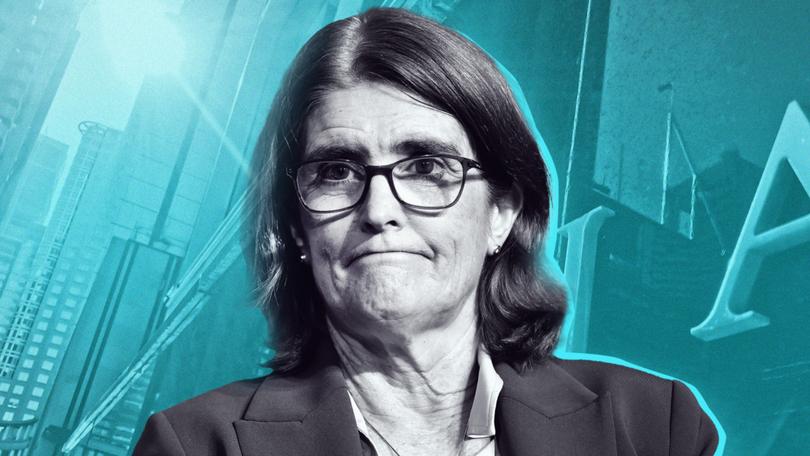RBA interest rates live updates: Reserve Bank hands down long-awaited interest rate cut to Aussie homeowners
The Reserve Bank has handed out a long-awaited interest rate cut for Aussie homeowners.

And that, folks, is a wrap!
In case you missed it, the Reserve Bank today handed out a long-awaited interest rate cut for suffering Aussie homeowners.
The cash rate was cut from 4.35 per cent - where it has been wedged solid since November 2023 - to 4.1 per cent.
Within 20 minutes of the welcomed decision, all four of the big four banks said they would pass on the full cut to variable rate customers. On a mortgage of $600,000, that’ll be an immediate $92-a-month saving when the new lower rates take effect towards the end of the month.
So, the big question now is: Will we get more?
That’s the million-dollar question. RBA governor Michele Bullock highlighted the strength of the labour market when she faced the media after the rates decision and said it would be a crucial factor considered before there’s any further cuts this year.
Market watchers, who had priced in a reduction - but had showed some signs of hesitation early today about whether the board would actually go through with it - will be adjusting their models overnight and we should hear more tomorrow on their forecasts for the rest of the year.
Some are already banking on two more cuts that will take the official cash rate to 3.6 per cent by December.
And that’s where it could stay, with Bullock warning those who reaped massive rewards with record low interest rates during the pandemic that the cash rate would be returning to a more neutral setting.
But, in this day and age, a saving’s a saving.
Use it wisely.
Thaks for joining us today.
And for all the news on what you may have missed, what it means for your budget and your mortgage, what it means for the timing of the Federal election and what the experts are saying, check out the feed below ...
Key events
18 Feb 2025 - 01:37 PM
RBA rate cut ‘won’t impact election timing’: PM
18 Feb 2025 - 01:23 PM
Labour market data key to next cut: RBA’s Bullock
18 Feb 2025 - 12:33 PM
Business groups welcome cuts and call for reforms
18 Feb 2025 - 12:29 PM
Where is the economy going?
18 Feb 2025 - 12:09 PM
Will this mean an election gets called soon?
18 Feb 2025 - 12:05 PM
Much-hyped rate cut will renew speculation of early election
18 Feb 2025 - 11:53 AM
How much will you save?
18 Feb 2025 - 11:49 AM
What now?
18 Feb 2025 - 11:46 AM
‘Very welcome news’: Treasurer responds to rate cut
18 Feb 2025 - 11:43 AM
Major banks follow rate cuts with mortgage drops
18 Feb 2025 - 11:38 AM
So how many cuts will we get now there’s been a first move?
18 Feb 2025 - 11:36 AM
Here’s what the RBA had to say ...
18 Feb 2025 - 11:31 AM
At long last ...
18 Feb 2025 - 11:21 AM
Will it be champagne or the tissues?
18 Feb 2025 - 11:01 AM
This graph says it all ...
18 Feb 2025 - 10:32 AM
Give ... and take (and why bank loyalty could be robbing you blind)
18 Feb 2025 - 09:57 AM
The ‘for’ and ‘against’ case for a cut (or a hold)
18 Feb 2025 - 09:43 AM
There’s a first time for everything ... even mortgage relief!
18 Feb 2025 - 09:25 AM
The RBA cuts rates ... so, what do you do next?
18 Feb 2025 - 08:55 AM
Why the RBA’s possible cash rate cut impacts all Australians
18 Feb 2025 - 08:47 AM
Could interest rate cut spark banking mortgage war?
18 Feb 2025 - 08:39 AM
RBA board meets to begin deliberation
18 Feb 2025 - 08:32 AM
What does your bank think will happen with rates today?
18 Feb 2025 - 08:21 AM
When will the RBA make an interest rate announcement?
18 Feb 2025 - 06:23 AM
Albanese shares ‘respect’ for RBA ahead of rate decision
18 Feb 2025 - 05:54 AM
Interest rate outcome set to influence election timing
18 Feb 2025 - 04:57 AM
How much would a rate cut save the average loan?
18 Feb 2025 - 04:54 AM
D Day for RBA rates call as economists warn cut not certain
RBA rate cut ‘won’t impact election timing’: PM
Prime Minister Anthony Albanese has brushed off suggestions the interest rate cut will prompt him to call an election sooner, rather than later.
An election is due by May 17, but many pundits speculated that the RBA’s decision could result in an April 5 or April 12 poll.
But the PM says the rate cut won’t have an impact on the timing of the election.
“We’ve been working on the Budget... we’ll continue to work and look at ways in which we can provide support for Australians,” he said.
Pressed on whether that Budget would actually be handed down next month, the PM said it would be.
PM: Rate cut welcome, but job not done
Anthony Albanese is doing the rounds on the radiowaves this afternoon, after the RBA cut rates by 25 basis points.
Starting on ABC Radio Brisbane, the Prime Minister says the rate cut will be welcome by Australians, but accepts there is still pressure.
“It’s certainly not job done, but they’ll welcome it,” he said.
“We have worked very hard to get inflation down.”
Labour market data key to next cut: RBA’s Bullock
A tightening labour market was the key sticking point in the RBA’s deliberations over the past two days, with Michelle Bullock saying how the labour market would respond to lower rates was the “million-dollar question”.
In its monetary policy statement, the RBA called out the strength of the labour market, noting that it had become tighter toward the latter half of the year.
Mr Bullock said it would be the most important data point to watch going forward.
Australia has a record low unemployment rate, despite having low growth, which had prompted a debate inside the central bank about what the so-called natural rate of unemployment should be.
The RBA has a dual mandate to watch unemployment and inflation and if the natural rate of unemployment is lower than anticipated, the bank would need to recast its inflationary impact.
“It is worth really checking ourselves on this and making sure that we really are certain that we have a good idea of how tight the labor market is and what the implications of that might be,” Ms Bullock said
“We can have a tight labour market but if it doesn’t, for some reason, feed through to inflation, and wages, then it’s positive.
“We want to see more information on, particularly, inflation and the labour market before we decide what we do next.”
Fiscal and monetary policy working together: RBA’s Bullock
Michelle Bullock has cautiously supported the role the Federal Government played in helping the economy deal with high inflation.
Asked whether the Government should “claim the credit” for getting inflation down, Ms Bullock suggested supply chains opening up and interest rates had been material but did agree policy had been helpful.
“I think we are succeeding in the mix of policies that we have got to bring inflation back down at the same time as we’re maintaining employment. So I think that’s actually a really positive outcome. It’s two arms of policy independent, but they’re each doing their own thing,” she said.
Global economy ‘pretty uncertain and pretty dangerous’
Global uncertainty - namely US President Donald Trump’s tariff agenda and ongoing geopolitical tensions - factored heavily into the RBA’s decision making this week.
Treasurer Jim Chalmers said the Government too has been paying very close attention to those risks, which he said also include the ongoing war in Ukraine, the tentative ceasefire in the Middle East, and political upheaval in Korea and France.
“The global economy is a pretty uncertain and pretty dangerous place right now,” he said.
They risk higher inflation and lower growth, he said, and the Govenmrnt takes that “very seriously, as does the Reserve Bank”.
‘Restrictive rates’ affecting households more than business: RBA’s Bullock
Michelle Bullock said the 15 months of five-year high interest rates had disproportionately affected the housing sector, and that even after today rate cut would still be ‘restrictive’ in terms of spending.
“Households are paying record historical amounts on their mortgages in terms of payments required as a share of their income,” she said.
“So it is still binding and very tight on the household sector. And this has been one factor, not the only factor, but it’s been one factor that’s been important in the response of consumption.”
Ms Bullock said that credit growth in the housing sector had been flat, while financial conditions for businesses had been better.
Election is ‘imminent’: Treasurer
The Government is “more or less full term now” and an election is “more or less imminent”, Treasurer Jim Chalmers said.
Asked if there was a risk in delaying the election until the very last minute, because so many decisions are put on hold, he said he didn’t believe that to be the case.
“Because we know there’s an election due in the next three months... we’re not talking about an election in six or nine or 12 months’ time,” he said.
“Regardless of the decision the Prime Minister takes, an election is more or less imminent. And it’s not a surprising timeline, because we’re more or less full term now.”
Market predictions on further rate cuts “too confident”: RBA’s Bullock
RBA Governor Michelle Bullock was warned that market forecasts of further interest rate cuts are too optimistic and said the Bank would be closely watching before reducing rates again.
“I want to be very clear that today’s decision does not imply that further rate cuts along the lines suggested by the market are coming,” Ms Bullock said.
“We have to be careful not to get ahead of ourselves. The truth is that some inflation pressures remain, and cost of living pressures are still front of mind for many.”
She said the bank needed to see some of heat come out of the labour market, while services inflation, which has been particularly sticky was a worry.
“We’d need to continue to see easing wage costs. We’d need to continue to see the disinflation in market services. In particular, we’d want to see the reduction in housing inflation is sustainable, and it’s continuing to come down, because that’s been a very big component of the rise in inflation over the last couple of years.”
Business groups welcome cuts and call for reforms
The Business Council of Australia has used today’s rate cut to call for more regulatory reform, saying the red tape is “putting a handbrake on much needed investment”.
Chief executive Bran Black said the cut was a welcome step in easing financial pressure on consumers and businesses “battling cost pressures” but more was need to get the economy moving.
“Australia must become a more competitive place in which to do business if we want to be a leading economy of the future,” Mr Black said.
Chief economist Stephen Walters said the decision looks like it was a line ball.
“The RBA’s statement indicates that the labour market has tightened and that the forecast for core inflation has been lifted, and although they say inflation appears to have eased, the Bank stated there are risks on both sides,” he said.
Where is the economy going?
AMP’s Shane Oliver has done the hard yarns and trawled through the RBA’s forecast to highlight the key points ...

